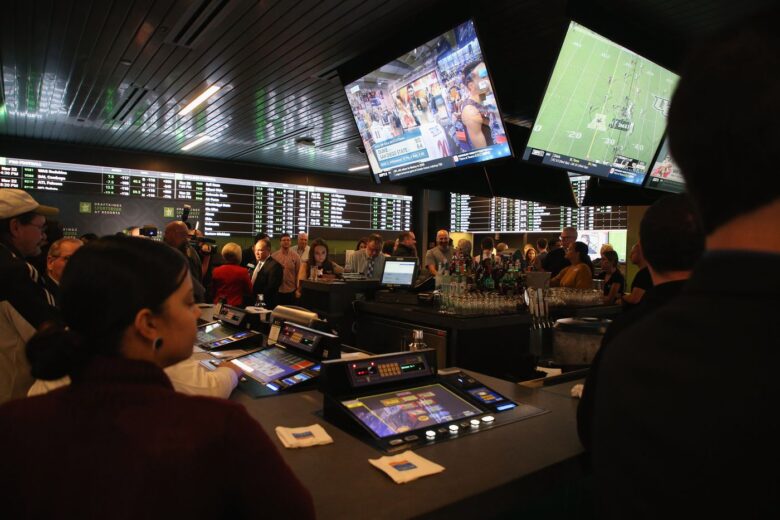Although sports betting can vary across a spectrum of punters’ approaches and behaviors, it is safe to say that there are two big types of bettors: the professional, regular bettors and the recreational, occasional bettors.
Of course this is not to say that there are no intermediary types of punters and you will most likely agree that there is no absolute rule or definite categories in betting, but as a general rule these two types of bettors are the most frequently found!
Which factors, attitudes, mental models, perceptions and actions distinguish these two broad types of punters? What are the characteristics of each of the two types? Which behaviors tell the difference between a professional bettor and a recreational bettor? Which is that thin line that sets the two types apart?
If you want to gain a better understanding of the basic differences between professional and recreational bettors or even if you want to identify your own approach when puntering on betting sites in Portugal for example, then you are at the right place. The following discussion sheds light to everything that is different between the two.

Source: myinfo.com.gh
1. The usage rate
Well, quite obviously the rate of betting is different. Professional bettors tend to wager regularly, in an on-going manner and in a systematic way, whereas recreational bettors are more occasional punters.
They tend to bet when there is an event for which they develop strong interest when they want to have fun and engage with a sport they love or commit more to a game they long to see and so on.
These recreational bettors can also be considered as social bettors as well, given that they like to bet on specific occasions which are usually tied to a social event, whether this is watching a game with friends or attending a sports game. Some recreational bettors tend to bet on something driven by their social interactions – for example, they wager against their friends’ wagers, or they wager collectively with their friends and so on.
Professional bettors don’t see occasions or social drivers in betting. They regard betting as an integral part of their engagement with the sport or even their approach and process to making an income.
2. Horizon
The time horizon is the second most fundamental difference between the two types of bettors. Professional bettors have a long-term interest in sports wagering and their decisions, choices and actions are driven by long-term objectives and goals. They don’t just bet to have a short-term win. They are looking for profits in the long run.
Alternatively, recreational bettors are more short-term oriented and they search for quick profits from wins. They don’t have a systematic approach and they are more ‘a la carte’ punters, who wager every now and then, depending on the occasion.
These bettors don’t have in mind how they want to be some years ahead in terms of betting. They only consider what is going on now, while their decisions span across a very limited time range.

Source: theringer.com
3. Betting markets
Professional bettors differ from recreational bettors even in the markets they choose to bet on. Clearly, professional bettors pick different betting markets from those picked by the occasional bettors.
The first ones don’t select their bets based on the attractiveness of the market, but based on their expected returns and their perceived edge. The second ones are likely to select their bets on the basis of what they find interesting, fascinating and attractive!
Most profoundly, recreational bettors will opt for placing a bet, let’s say, on whether their favorite team will win a match or their favorite athlete will qualify for the next round in the Roland-Garros tournament.
But professional bettors look into other betting markets besides the basic ones. They will bet on everywhere they have an edge, be it an over/under bet, an outright bet, a handicap or even a prop bet. They will look for any kind of issue that might impact a game, like for instance the home-field advantage or previous match-ups. Professional bettors don’t limit their options to the fundamental markets. They search among bookmakers’ lists and betting sites’ categories and betting offers to find what suits their edge.
4. Strategy
This is quite a hard thing to explain for each of the two types. Of course, professional bettors have a betting strategy in place and they are most likely developing this strategy based on their goals, their skills and the market offerings.
But recreational bettors can also have a strategy when they are wagering. The fact that they are occasional punters or they bet for entertainment does not exclude or undermine any strategic approach.
The difference however is that for professional bettors, strategy is the systematic approach to betting, while for recreational bettors strategy is the deliberate approach to betting.

Source: sportshandle.com
5. Bankroll
Bankroll management is most obviously a key feature of professional betting. In fact, it is quite impossible for someone to claim he is a professional bettor without having a strategy and a plan for his bankroll management.
That is, regular, pro bettors have bankroll management strategies developed and followed and they don’t deviate or move away from what their plan and strategy tells them to do. It’s their system of getting to where they want to get when it comes to how much they bet and how they allocate money.
On the contrary, recreational punters tend to be more unorganized in that manner. They don’t have an intended bankroll management strategy or plan, because they will most likely not stick to it! They are more intuitive and more impulse bettors than professional bettors, and this can’t really work well if there is a tight plan for bankroll management.
Conclusion
So, there you have it. These five things are the basic areas in which professional bettors differ from recreational bettors. In some cases the line that sets these two types apart is really thin and the thing is that too often we see recreational bettors turning into Pro bettors, while regular bettors becoming more of occasional bettors.
